Andouille Sausage Links, Cajun Style
March 21, 2012 | Updated September 04, 2022
As an Amazon Associate I earn from qualifying purchases.
Along with the hot dog, Louisiana andouille sausages are quintessentially American. Here’s a traditional recipe for making them at home.
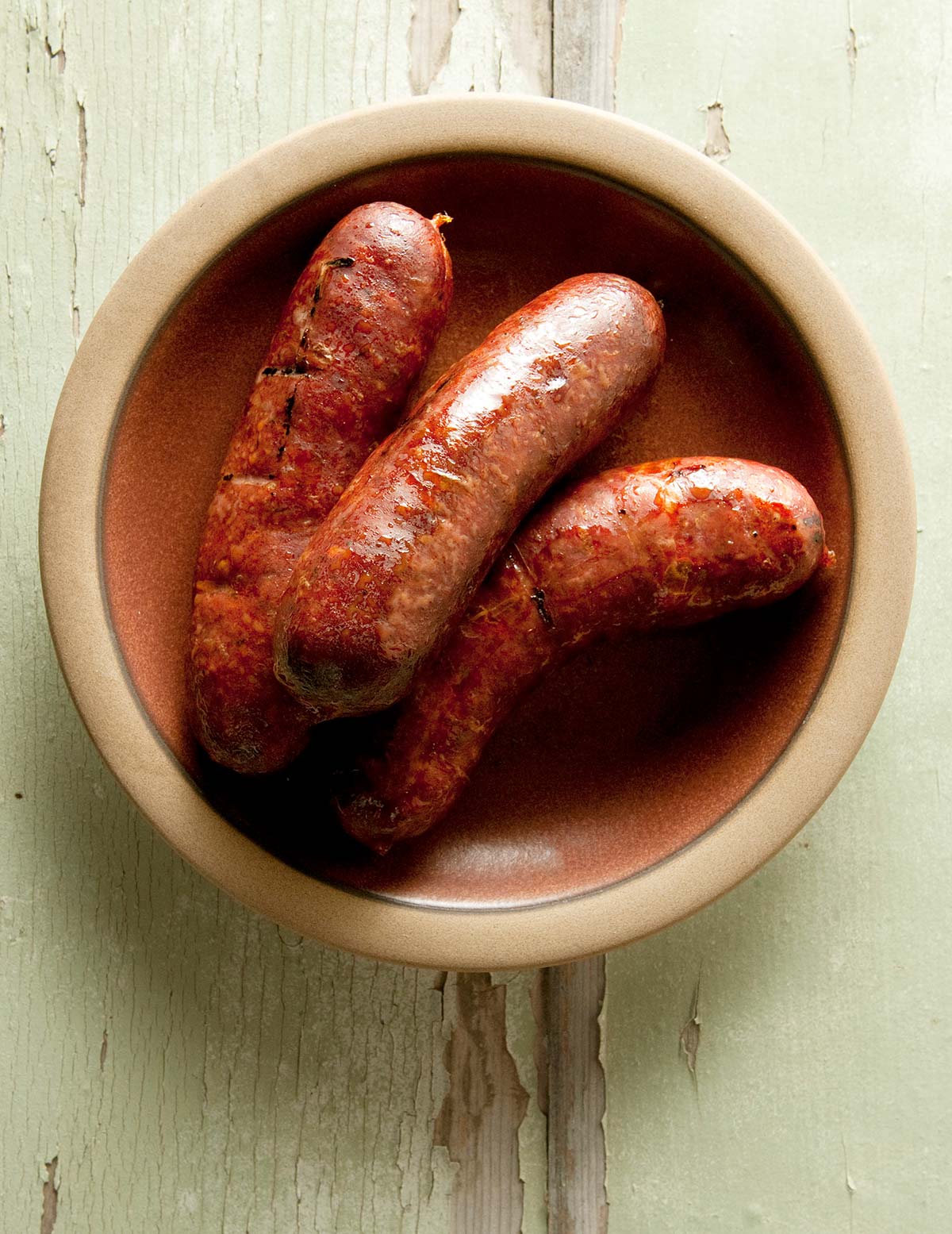
And like the hot dog, andouille sausage too owes at least part of its origins to Germans, even though with a French name it sounds counterintuitive. So far as I can tell, Louisiana-style andouille sausages are a product of early German immigration — and when I mean early I mean the 1750s, when Louisiana was part of France.
France still has versions of andouille, but the American variety has been evolving independently for centuries, and no longer resembles its ancestors.
What Makes Andouille Unique?
Andouille sausage is a Cajun creation, most at home in southern Louisiana, but it also appears a lot in New Orleans Creole cooking, too. It is almost always smoked and heavily seasoned. Typically andouille is seasoned with garlic, cayenne or other hot chiles, black pepper and usually thyme. Sometimes cooked onions appear in the mix.
Remember, there are as many versions as there are cooks, and Louisianans guard their recipes closely. (Note: If you are looking for that other quintessential Cajun sausage, boudin, my recipe for that is here.)
Andouille is chunky, too. Some cooks hand mince everything and stuff that into casings, which is cool, but very labor intensive. I prefer to hand mince about a quarter of the meat and fat, then grind the rest through a coarse die of about 7 or 8 mm.
The other unique thing about andouille sausage is how it is smoked. In Cajun country, andouille is smoked over spent sugar cane stalks after they’ve been pressed for sugar, hackberry wood or pecan — or a combination of the three. For home cooks, pecan is the easiest to obtain.
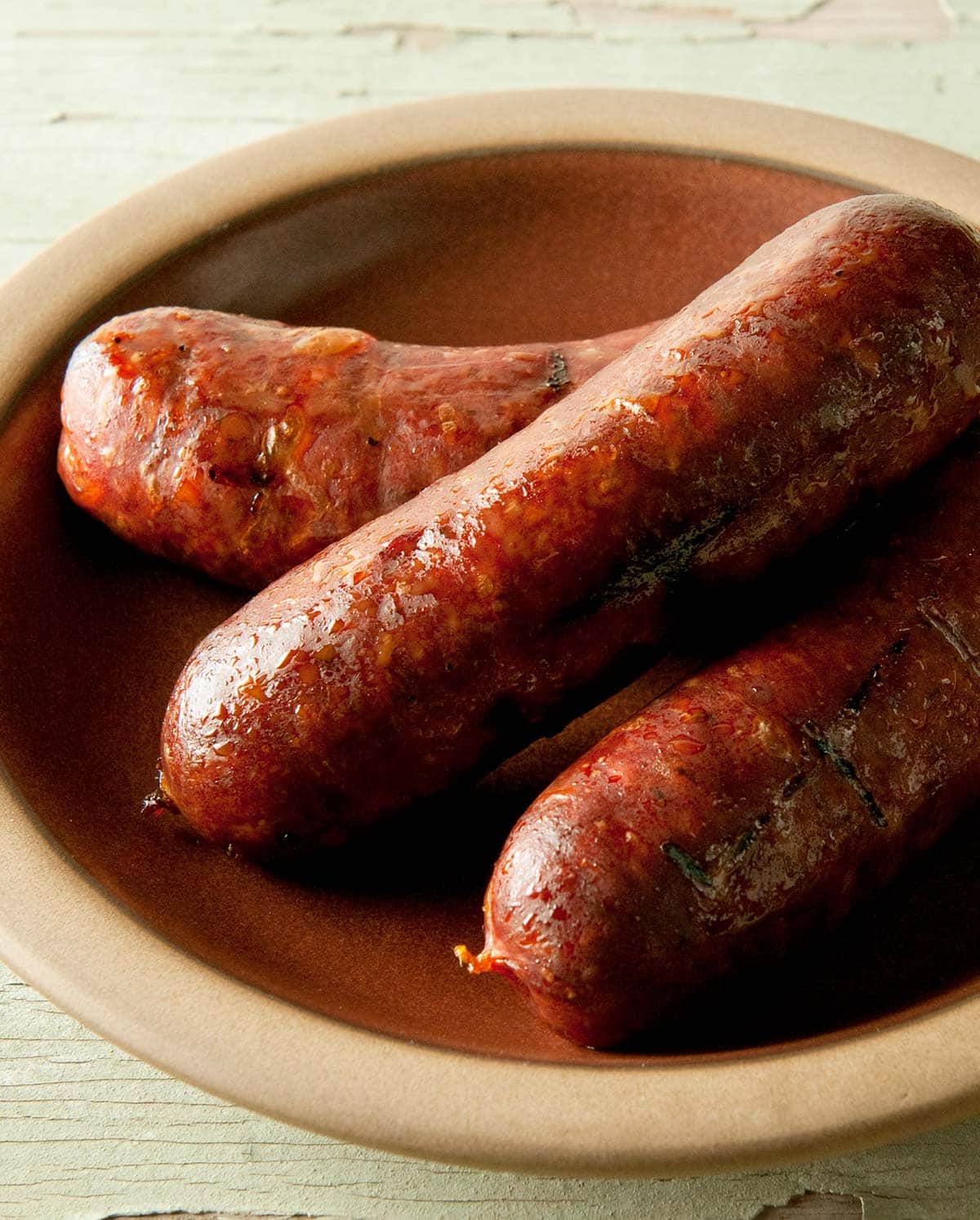
What Meat is in Andouille?
Normally andouille is a 100 percent pork sausage, but my homemade version is a mix of venison and pork. Why? It’s what I had lying around in the freezer. Frankly, andouille is so heavily spiced and smoked you can make it with whatever meat you have on hand.
I’ve seen andouille made with rabbit and gator, venison, beef, you name it. Cajuns are resourceful and thrifty. But pork fat is key: I’ve never seen or heard of an andouille sausage that didn’t have pork fat in it, regardless of the other meats.
How to Use Andouille Sausage
There is no reason you can’t just eat an andouille sausage: A link served on a bun with green peppers, minced celery, onions and Creole mustard would be damn good — Cajun hot dog! But it is typically tossed into other dishes, like gumbo or jambalaya.
Andouille shows up as an accent in lots of dishes, from the aforementioned gumbo and jambalaya to courtbullion, etouffée, shrimp and grits and sometimes sauce piquante.
Once smoked, andouille sausage lasts in the fridge a week or so, and it freezes very well. Remember these will be cooked sausages, so once you decide to use your andouille you’ll just be reheating them, not cooking them.
For hunters: If you are starting with frozen wild game, you can thaw it, make these sausages, smoke the links and then refreeze them. So long as you cook them to an internal temperature of at least 150°F, the texture of the sausages will not suffer too much.
Cajun Andouille Sausage
Ingredients
- 3 1/2 pounds venison, pork, beef or other meat
- 1 1/2 pounds pork belly or fatty shoulder
- 33 grams kosher salt, about 3 tablespoons
- 4 grams Instacure No. 1, about a teaspoon
- 3 tablespoons minced fresh garlic
- 2 teaspoons cayenne
- 2 tablespoons sweet paprika
- 2 teaspoons dried thyme
- 1/2 cup ice water or beer (put in fridge to keep it cold)
- Hog casings
Instructions
- Take about 10 to 15 feet of casings (typically three lengths) and submerge them in warm water.
- Cut the meat and fat into chunks and toss with the salt, Instacure, garlic, cayenne, paprika and thyme. You need the Instacure No. 1 as a safety measure when you smoke the links; if you don't plan on smoking them, you need not use this. Put everything in a container and freeze for 30 minutes to 1 hour, or until the mixture is 35°F or colder. You can also put the mix in the fridge overnight; this will help the bind.
- Grind everything through the coarse die, 7 or 8 mm. Andouille is most typically a country-style, coarse sausage. If you want, you can even hand-mince the meat yourself. If you want to do this, hand mince 1/4 of the meat and fat mixture to get a more interesting texture for your sausage.
- Make sure the mixture is very cold, about 30°F; you will probably need to freeze it again for a while. When it's cold enough, take it out and add the chilled water or beer to the bowl and mix on the lowest setting for 90 seconds to 2 minutes, or with your very clean hands for 2 minutes. The look of the meat will change as it binds to itself, and will look more like thick batter than ground meat and fat.
- If you are making patties, you're done. Store each patty between pieces of wax paper and then wrap tightly in plastic wrap, then foil, before freezing. If you are making links, load up a sausage stuffer with the meat and fat. Rinse the casings by running warm water through them: You want to flush some salt and check for any holes in the casings. Thread an entire casing onto the stuffer and fill it slowly. Coil the filled casing as you go. Fill all the casings before making individual links.
- To make individual links, tie off one end of a casing. Compress the sausage inside it to fill that end link. Pinch off a link and flip it away from you several times to tighten it. Move down the coil and pinch down another link. This time, flip the link back toward you to tighten it. (Here's a quick video on making the links) Repeat this process down the coil until you get to the end. Tie off the end link. Repeat with all the other casings.
- Hang your sausages to dry for an hour or more. Hang for 1 to 2 hours at room temperature, or up to overnight where your temperatures are below 45°F. I use a standard clothes drying rack to hang my links. When the sausages are hanging, use a large needle to pierce any spots on the links where there is air trapped underneath. Sterilize the needle in the flames of a gas burner or with a lighter until it glows. You need to pierce any trapped air or your links could burst when you cook them.
- Once the sausages have hung, smoke them over pecan wood for 3 to 4 hours. If you hot-smoke your links, pull them when they reach an internal temperature of 155°F. If your links don't get to that temperature in time, you can either smoke them longer, or you can finish the cooking in an oven set at 200°F. Once they're fully cooked, let them cool before freezing.
Nutrition
Nutrition information is automatically calculated, so should only be used as an approximation.

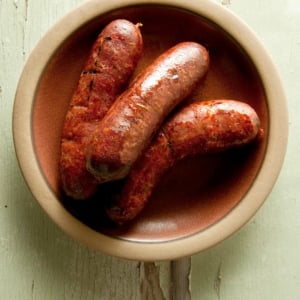
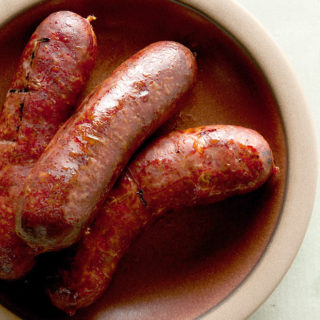
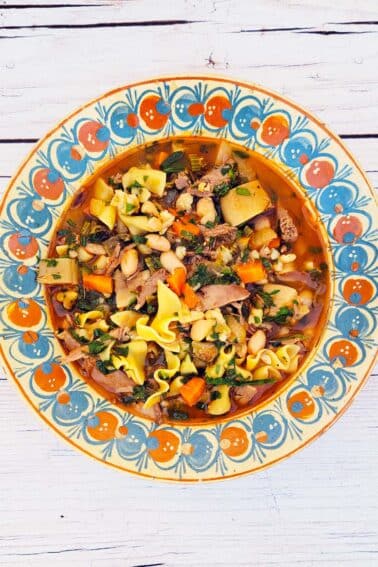
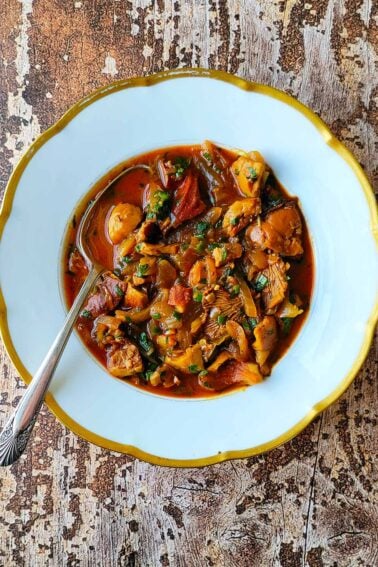
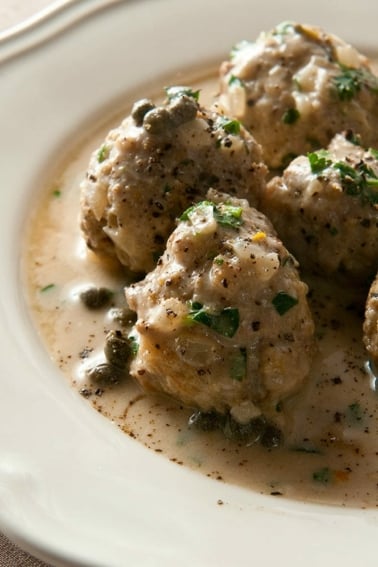
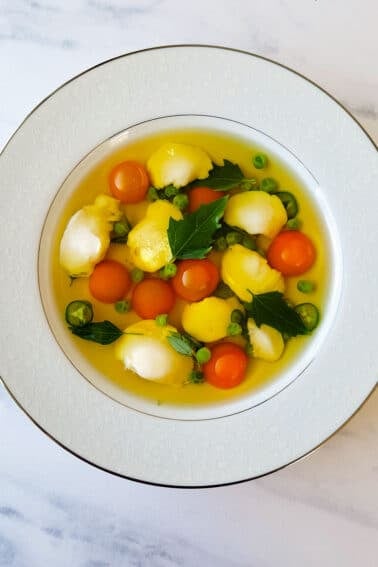
Thank you
Real Cajun Andouille uses dry red wine, like Cabernet Sauvignon or Merlot instead of water or beer. It also has more garlic, no sage, and black pepper. But, the dry wine is the real secret. Mix all your dry ingredients into the wine and poor over the ground meat and mix well. Let cure overnight, uncovered, in the fridge. I’m a 7th generation Louisiana native who lives in the Andouille capital of the world, LaPlace, LA. The wine measurement is 1 cup per 5 pounds meat.
Made this with venison and pork belly — absolutely delicious. Hung, smoked, and then finished sous vide. Froze the extra directly in the sous vide bag, and they were 95% as good as fresh even months later.
Made this over the weekend and used beaver meat. Came out great. I might up the heat just a tiny bit next time but this recipe made it very easy.
First and foremost – Red Beans and Rice, then gumbo or jambalaya. Monday was the normal day for red beans and rice – mother’s and grandma’s were busy doing the wash, so a pot of red beans on the fire required no attention.
I’m smoking this recipe right now. I think the curing salt is off. I believe it’s 1.134g per pound of meat. This assessment appears to apply to the meat only and not to the additional pork which would bring it to 5.67g of pink #1. Is there an error somewhere? I’m so new to this.
did you have a different version of this that included cooked onions and dry milk?
Looks like a good recipe but I’m surprised it doesn’t have any black pepper. I can’t get pecan wood up here and hickory is probably too strong, but I do have silver maple, apple, and hackberry (never thought of smoking with hackberry before) Corn cobs make good smoke too.